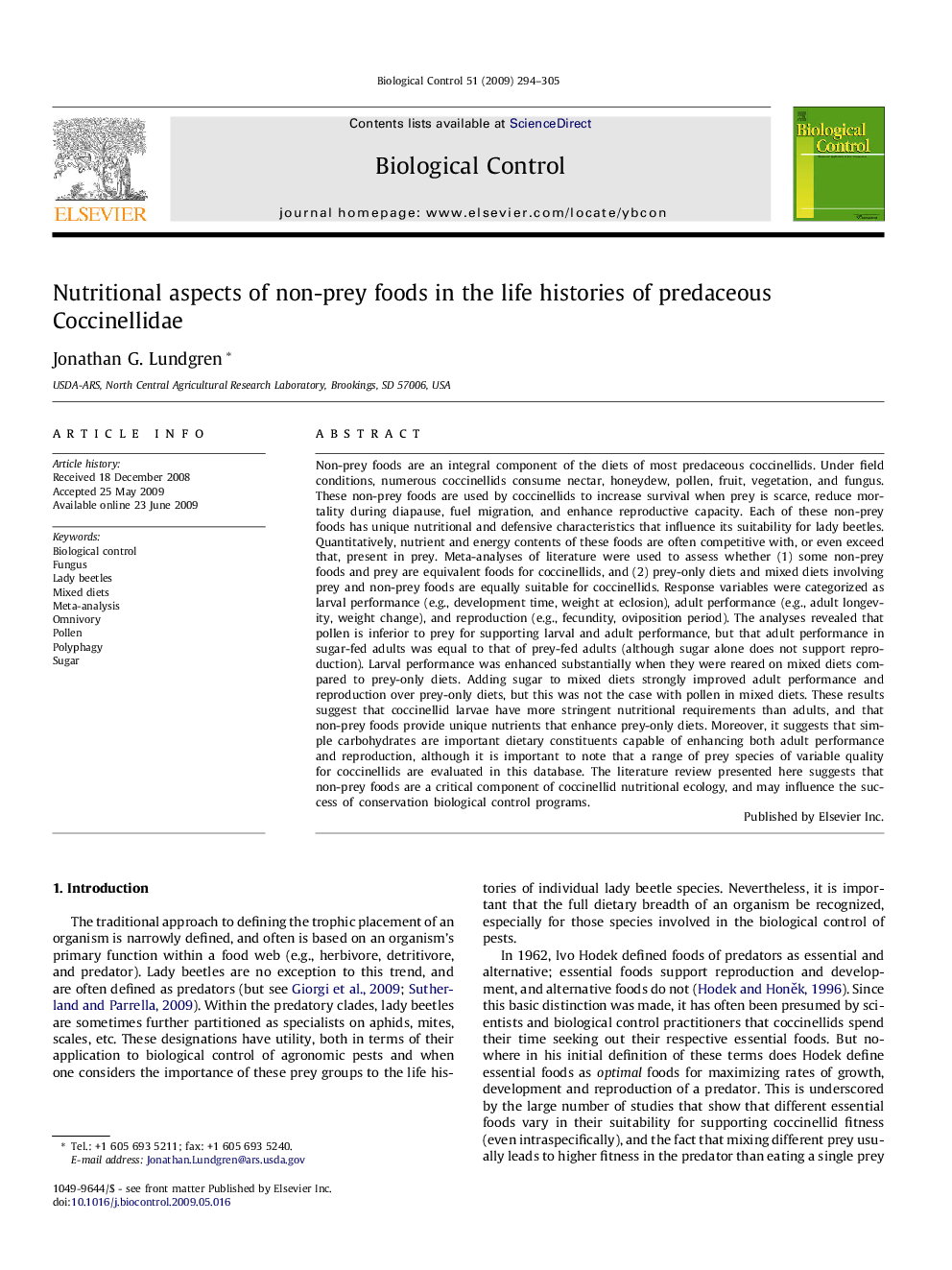| کد مقاله | کد نشریه | سال انتشار | مقاله انگلیسی | نسخه تمام متن |
|---|---|---|---|---|
| 4504295 | 1321084 | 2009 | 12 صفحه PDF | دانلود رایگان |

Non-prey foods are an integral component of the diets of most predaceous coccinellids. Under field conditions, numerous coccinellids consume nectar, honeydew, pollen, fruit, vegetation, and fungus. These non-prey foods are used by coccinellids to increase survival when prey is scarce, reduce mortality during diapause, fuel migration, and enhance reproductive capacity. Each of these non-prey foods has unique nutritional and defensive characteristics that influence its suitability for lady beetles. Quantitatively, nutrient and energy contents of these foods are often competitive with, or even exceed that, present in prey. Meta-analyses of literature were used to assess whether (1) some non-prey foods and prey are equivalent foods for coccinellids, and (2) prey-only diets and mixed diets involving prey and non-prey foods are equally suitable for coccinellids. Response variables were categorized as larval performance (e.g., development time, weight at eclosion), adult performance (e.g., adult longevity, weight change), and reproduction (e.g., fecundity, oviposition period). The analyses revealed that pollen is inferior to prey for supporting larval and adult performance, but that adult performance in sugar-fed adults was equal to that of prey-fed adults (although sugar alone does not support reproduction). Larval performance was enhanced substantially when they were reared on mixed diets compared to prey-only diets. Adding sugar to mixed diets strongly improved adult performance and reproduction over prey-only diets, but this was not the case with pollen in mixed diets. These results suggest that coccinellid larvae have more stringent nutritional requirements than adults, and that non-prey foods provide unique nutrients that enhance prey-only diets. Moreover, it suggests that simple carbohydrates are important dietary constituents capable of enhancing both adult performance and reproduction, although it is important to note that a range of prey species of variable quality for coccinellids are evaluated in this database. The literature review presented here suggests that non-prey foods are a critical component of coccinellid nutritional ecology, and may influence the success of conservation biological control programs.
Journal: Biological Control - Volume 51, Issue 2, November 2009, Pages 294–305